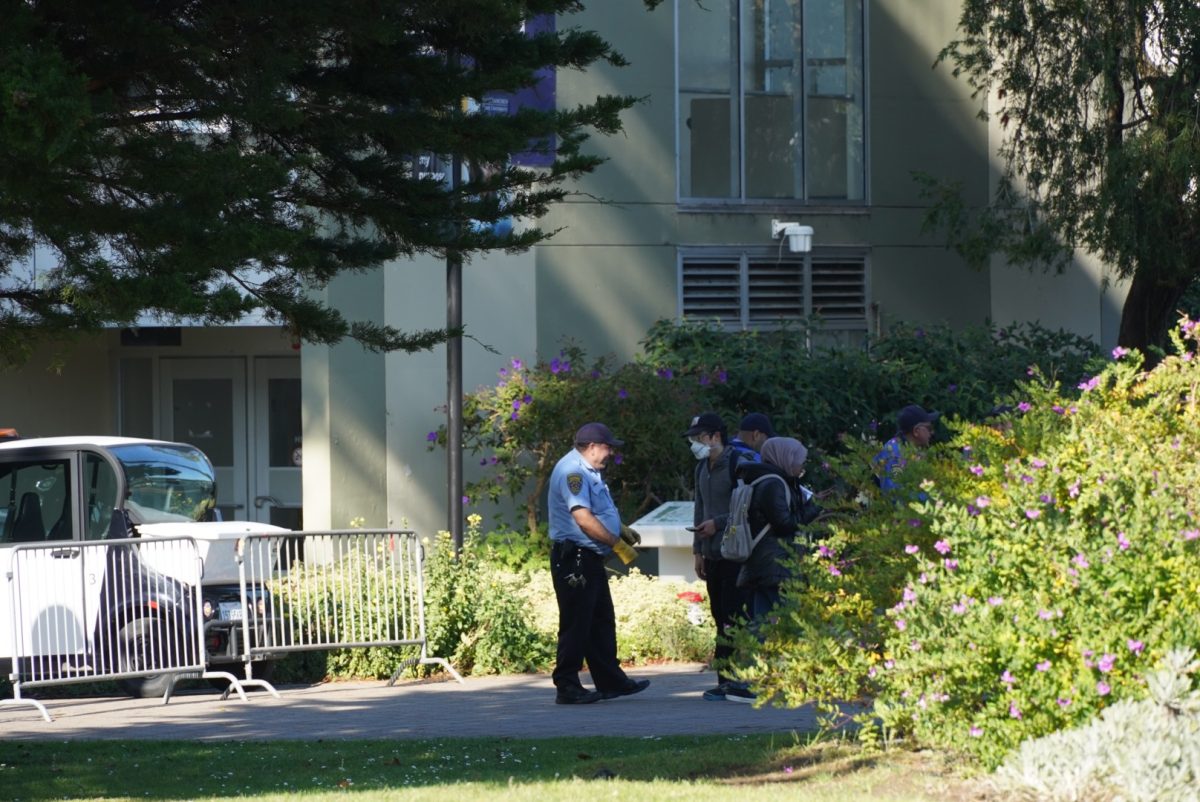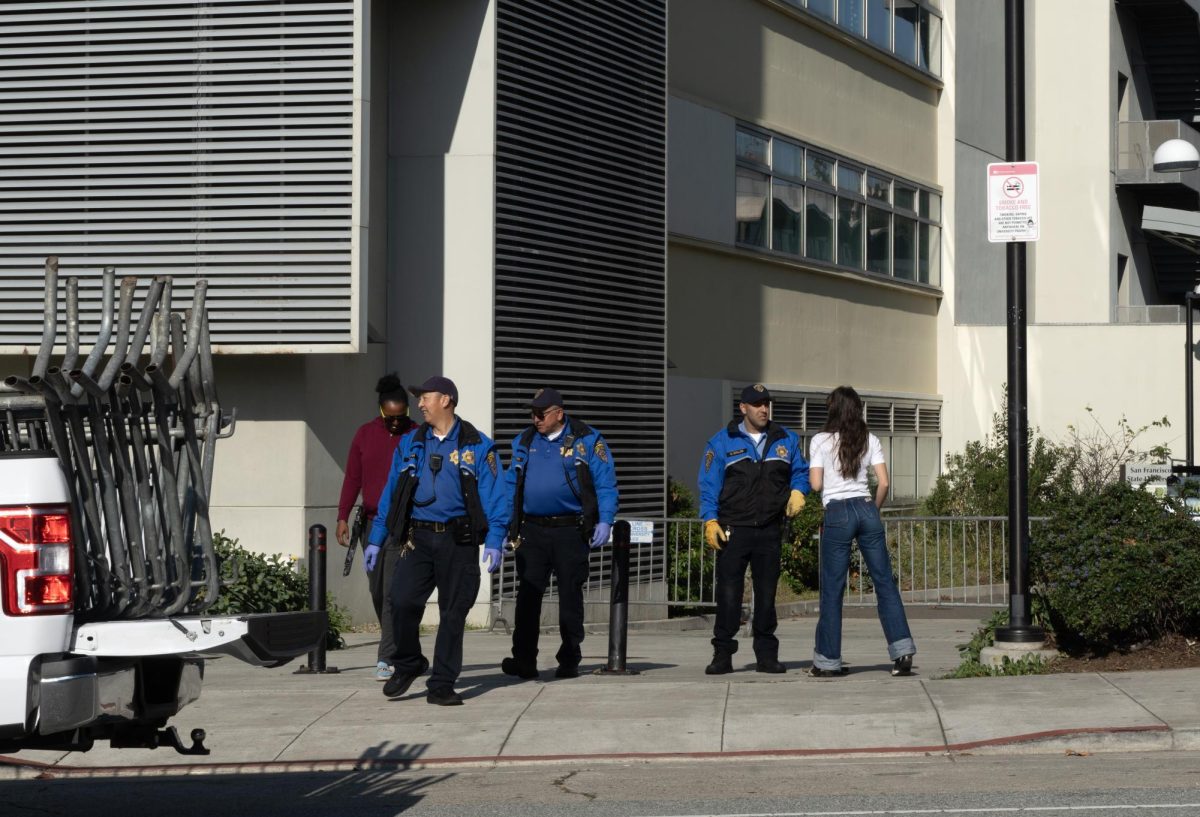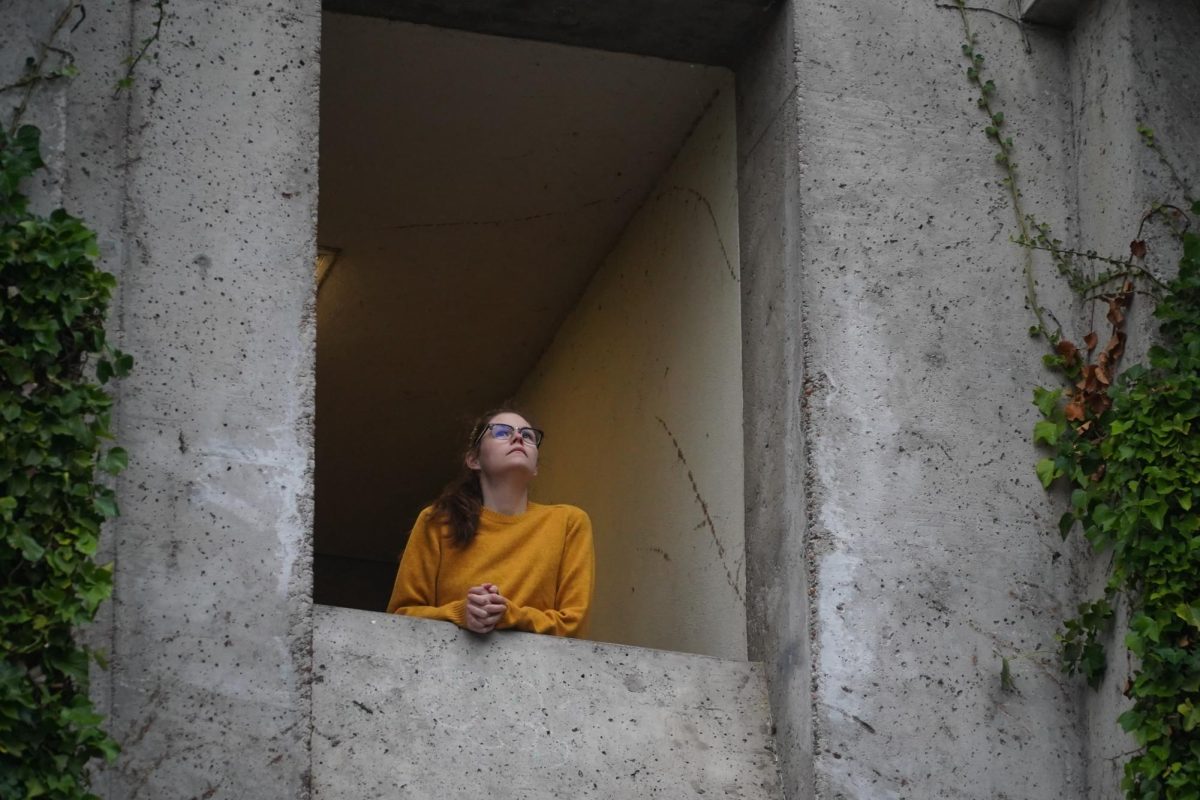Claire Weeks-Young bit her lip in confusion. It was her first time operating a camera and she had no other choice but to press on. Time was running out.

Claire Weeks-Young sets up the camera while shooting “To You” for Campus Movie Fest Oct. 13 (Photo by MJ Johnson / Golden Gate Xpress)
This was the last day of shooting before her filmmaking group would have to submit their completed short movie. The group had just one week to shoot and edit their movie and the deadline was fast approaching.
She waved her hand to get the attention of the actors preparing for the scene.
“Okay, we’re rolling … and action!” she shouted.
Weeks-Young and a group of five other queer identifying students of color made their movie as part of Campus Movie Fest, the world’s largest student film festival that offers equipment and a platform to students to produce a short film in a week.
“We’re all friends and so we thought it would be fun to collaborate on something creative,” said Weeks-Young, a Bio-chem major who co-wrote, produced and shot the film.
The group wanted to emphasize a queer narrative in under five minutes for their short film. “To You,” the film they submitted to the Campus Movie Fest, follows two characters, Eric and Matthew, who struggle to be open about their relationship.
“We’re queer people telling a queer story,” said Carlos Fuentes, a junior and sociology major who acted as the producer. “When you see queer movies, the writer’s are straight, the actors are straight and it’s just what they think we look like.”
The group wanted to emphasize the happy ending for the characters in the film. Fuentes and Weeks-Young pointed to movies like “Moonlight” or “Call Me By Your Name” in which queer characters don’t experience the same outcomes in relationships as heterosexual couples in film.
“We want to inspire other queer people to have hope that there is something for us, ”said Luis Blanco, a junior and English literature major who wrote the script with Weeks-Young.
With the rush to shoot and edit, the student filmmakers improvised creative locations and methods. They filmed around the neighborhood near campus, in their apartment and guerrilla style at a movie theater and ice cream parlor. Although there were moments of panic — like the camera inexplicably running out of battery in the middle of a scene, oblivious passers-bys walking into frame and editing software crashing unexpectedly — the group shared countless laughs while in production.
“This is a diverse crew that is representative of what you see on screen,” said Jason Lemos, an actor who played the role of Eric. “It’s hard finding gay roles because they are often heterosexual, but this was a great opportunity to play a character that is more authentic and real to me, because this is my life.”
At the Oct. 15 deadline, 35 films created by student filmmakers were submitted to be judged by an anonymous panel of students and faculty that are diverse in race and age, according to Byron Gamble, the Campus Movie Fest representative for the West Coast. The CMF representatives helped students with filming gear and editing technical support during the moviemaking week.
“We want to hear more stories that aren’t told yet,” Gamble said. “We don’t have restrictions so students can tell any story they really want. I hope students take this as a way to memorialize a place in their life and tell the story that they were feeling at that moment in time.”
Oct. 18 at the Mckenna Theater, 16 of the best movies premiered in front of a crowd of budding filmmakers. The Silver Tripod award was given to “Missy” and other Jury Awards were handed out to the best films from SF State. “To You” was a Jury Award Winner and one of the Top 4 best films of the night. The group of filmmakers from the winning films will travel to Hollywood to enter CMF Terminus, which showcases 200 short films from campuses across the nation.
Other Jury Award winners have the opportunity to attend the Cannes Film Festival next year. Campus Movie Fest has sponsored categories for women in film, for female identifying filmmakers, and social justice, for films with a hopeful message, that offers further prizes including a $10,000 cash prize. Weeks-Young will submit “To You” into those categories.
“Representing women is incredibly important since they are not represented in mainstream cinema nearly as much as men are, and I love that we are pushing toward equality with that,” Gamble said.






